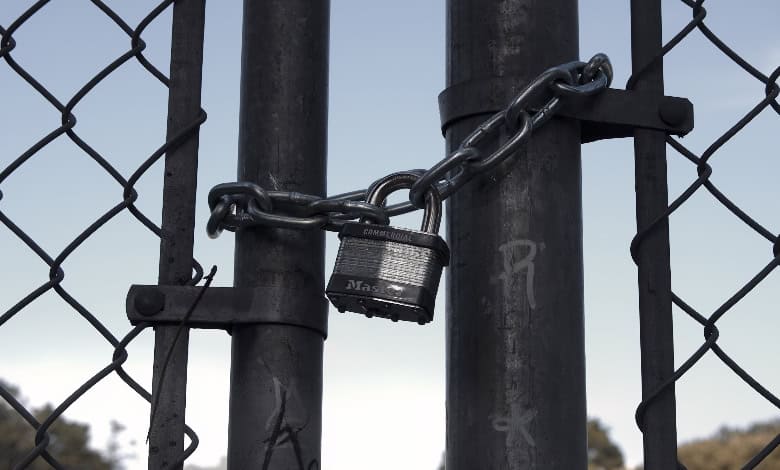Why ‘Generation-Covid’ Doc Could Prevent Future Lockdowns
Director Andrew James shares how truth comes second for some filmmakers

Andrew James made his first documentary as a lark.
The Utah native co-directed “Cleanflix,” the story of movie studios suing companies for editing out their films’ mature content, during his BYU days.
“We had no idea what we were doing,” a humble James tells Hollywood in Toto.
“Cleanflix” earned a slot at the Toronto International Film Festival and generated strong reviews. The accidental fame upended his professional goals. “That was it … I wanna make movies now.”
The experience gave James a golden ticket, of sorts, into the documentary film arena. He spent time at the Sundance Institute, sharpening his storytelling skills. Other film-related invitations followed, including pitch sessions and mentorships.
And, along the way, James saw how the docu-sausage was made.
“It was eye-opening,” he says.
His follow-up project, “Street Fighting Men,” followed three black Detroit residents eager to improve their lives and those around them.
He earned a Sundance grant to finish the project, along with unsolicited advice.
“It wasn’t political enough for them,” he says of the chronic feedback for a film that hit the festival circuit from 2017-2019 before its 2020 release. Collaborators, along with those adjacent to the project, wanted a film that captured the burgeoning Black Lives Matter movement in the wake of Michael Brown’s 2014 death.
The experience taught him hard lessons about both the industry and its cultural expectations.
“The art is secondary to the messaging,” he says. “If the art is also there, they get really excited.”
He tried to diplomatically listen without compromising his vision.
“I consider myself a Leftist … I was trying to please these people while being true to my art,” he says. Those experiences taught him conflicting themes about non-fiction storytelling in the modern era.
“Objectivity doesn’t exist … there’s no truth,” he recalls of the teachings, pushed through funding from groups like George Soros’ Open Society Foundations. “Lived experience” mattered more, the experts insisted.
“That’s what I was up against,” he says.
In the end, James didn’t take his peers’ advice. That decision had professional consequences.
“First, I was treated really well. That shifted. [Later] I was treated like the enemy,” he says. “Eventually, I just drifted away from the whole scene. They won’t speak to me now. I can only assume why.”
His current project, “Generation-Covid,” won’t win them back.
The world wants to forget what happened during covid.
But our children are still paying the price.
Generation-Covid is a documentary feature film that tells the story of this forgotten generation. pic.twitter.com/9VRxWdqMDI
— Jennifer Sey (@JenniferSey) August 7, 2025
He first read entrepreneur and author Jennifer Sey’s views on COVID-19 on Twitter. Sey waged rhetorical war against lockdowns, arguing they dramatically impacted children’s lives. For that, she famously lost her plum job at Levi’s.
A few clicks later, James was invited into a private chat on the subject, during which he mentioned he was a documentary filmmaker.
Sey, who previously produced the gymnastics exposé “Athlete A,” wanted to make a movie about the lockdown’s punitive effect on kids. It’s a subject the Legacy Media reluctantly acknowledged years after the fact, but she felt it deserved more attention.
James agreed, setting the stage for “Generation-Covid.”
The documentary lets children and censored experts alike share how the U.S. Government needlessly punished Americans, all in the name of “science.” The film’s official description explains more:
Despite clear and incontrovertible real-time evidence of the harms being done, especially to the poor and working class, powerful forces sought to censor, silence and vilify anyone who questioned the efficacy of these unprecedented and unscientific decisions, and our children are still paying the price.
We all are.
James isn’t a parent yet. He and his wife are expecting their first child. He went into the project as someone fearful of authoritarian overreach. He also understood a core truth about life.
“Adults forget what it’s like to be a teenager or to be in grade school,” he says. “That’s your whole world, and you had it stripped away [with the lockdowns].”
Cynics may label “Generation-Covid” a conservative film, given some of the arguments in play. Right-leaning Americans were more skeptical of COVID-19 overreach than their liberal peers. Key figures on the Left celebrated vaccine mandates, for example.
James says politics play a part in the film, but only by necessity.
“The film isn’t a pro-Trump movie. We’re not letting him off the hook either,” he says. “The film points out that this was a systemic problem. Both parties played a role … it’s baked into the story.”
One problem facing “Generation-Covid?” Some may wish to forget about the lockdowns and the damage done.
“There is definitely cultural resistance to revisiting this from all political perspectives. A lot of people participated in it and feel some shame around it,” he says, referring to a period of “mass hysteria.”
“People don’t want to think that it could happen again … but it will happen again if we don’t have this conversation. It could be much worse … that’s why the film is being made,” he says.
James remains disconnected from the documentary field, which he sees as collectively out of touch.
“Every movie is about climate change or LGBTQ+ or trans issues … they all follow the same aesthetic tropes… I don’t want to keep doing that,” he says. “I wanted to make something challenging.”
